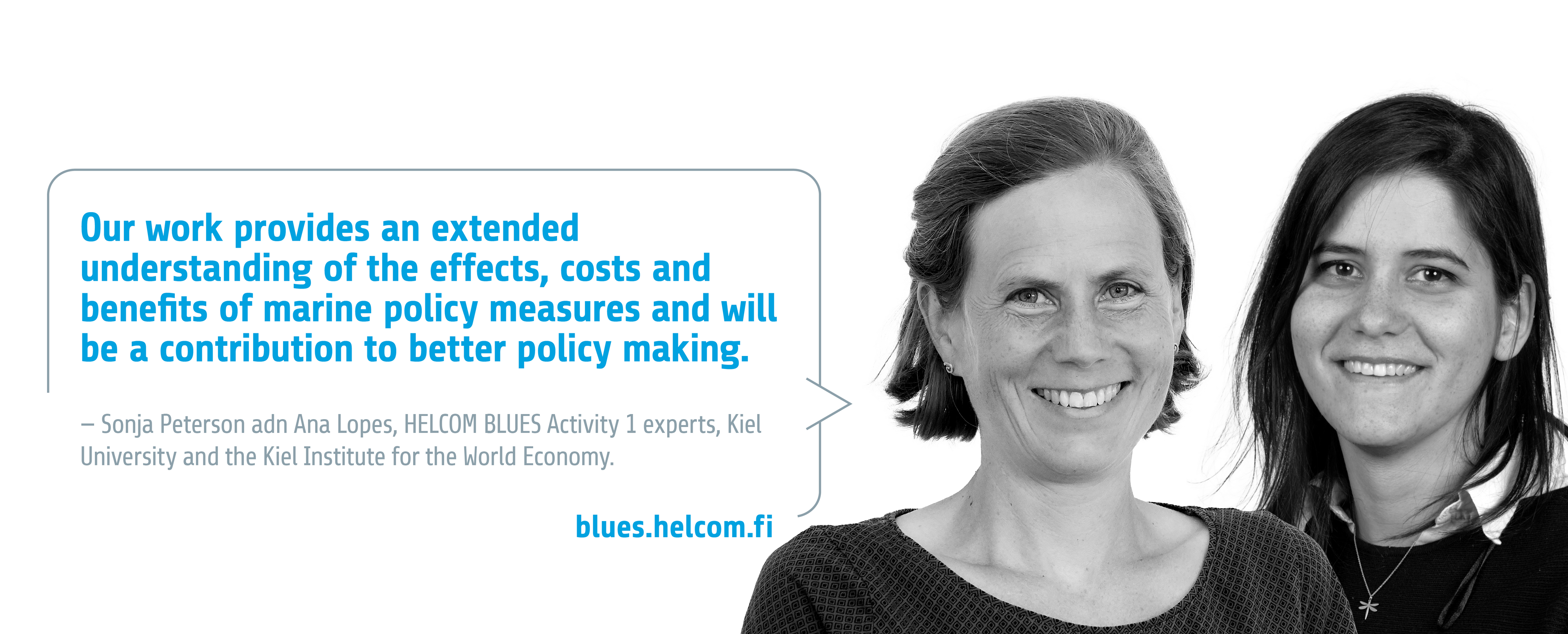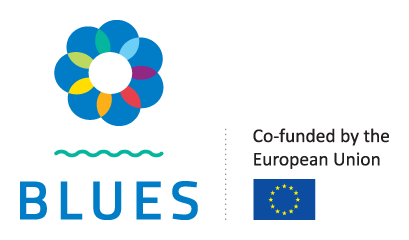
Sonja Peterson and Ana Lopes are experts involved in Activity 1 on effectiveness and measures. They are senior researchers at Kiel University and the Kiel Institute for the World Economy, a research institute focusing on global economic challenges. Sonja is an expert in economic policy instruments and climate-economy modeling. Ana is an expert at valuation of non-market goods and services, especially coastal and marine ecosystem services.
What is your Activity/Task in HELCOM BLUES all about? What main challenges and/or pressures on the Baltic Sea does it try to solve?
Our Kiel-team contributes to Activity 1 which aims to compile, compare and process existing data on the environmental and socio-economic costs and benefits of marine policy measures, such as the cost of environmental degradation in the Baltic Sea. These measures address a broad range of pressures on the Baltic Sea, including for example eutrophication, marine litter, invasive species and fishing. The concrete measures we are compiling data on range from local measures such as mussel farming and removal of beach-cast algae, to broader measures such as implemented targets for nitrogen reduction.
What are the planned outcomes of your specific BLUES Activity/Task?
Activity 1 has several outcomes that we are involved with. Our Kiel-team has been largely involved with the development of a literature survey database that compiles monetary data on the costs and benefits of a variety of measures as reported by a large number of existing studies. This database acts as a basis for further tasks within the HELCOM BLUES project but is also a useful source of information for future research activities.
How will your BLUES Activity/Task benefit your organization in particular and the Baltic Sea in general?
Our organization will benefit from the knowledge we have acquired about the existing literature which will be carried over to future research projects. We will also benefit from the experience to generate a structured database from existing literature. We hope that our work lays the basis for extended understanding of the effects, costs and benefits of marine policy measures and will thus be a contribution to better policy making.
